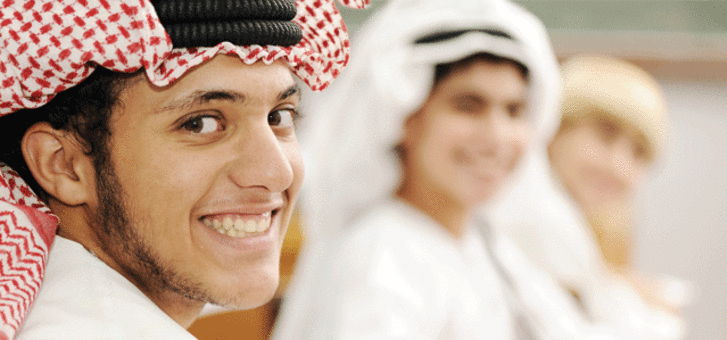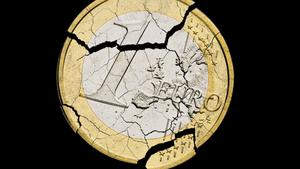"They are called Shabab—the youth. This young Arab generation, much like the West’s protest generation of the 1960s, will change not just politics but the entire culture and outlook of the Middle East,” reported The Australian in April.
We watched as a revolution that seemed to come from nowhere played out in Libya, Yemen, Bahrain and Syria. Even Israel’s Deputy Prime Minister and Minister of Intelligence, Dan Meridor, confessed, “We didn’t know. Had you asked me the day before it happened in Egypt, I would have told you ‘no way’. Or Tunisia for that matter . . . nobody predicted this happening in any specific way.”
In Egypt, 30 per cent of youth are unemployed. In Algeria, it is 46 per cent. Numbers like these are repeated all through the Middle East. The Shabab link their unemployment, inability to get an education and get married to the wastefulness of the ruling powers. They felt that not only was Egypt’s Hosni Mubarak and Tunisia’s Zine El Abidine Ben Ali squandering their country’s wealth, but also destroying the personal future of every young person by not educating them properly and by failing to create an economy that would provide jobs for them in the future.
The Middle East has some of the youngest demographics in the world. Of its 360 million inhabitants, 60 per cent are under 29. The median age is 22 and in some countries it is even younger. Yemen’s median age is 18, Iraq’s 20 and Saudi Arabia’s 25.
A recent report by the Egyptian Council of Ministers shows that the number of Egyptians living below the poverty line has risen from 17 per cent in 2000 to 22 per cent in 2010. People living in rural areas make up 80 per cent of the poor. This is where the majority of the millions of illiterate people live. The educational deficit is also marked by a pronounced gender gap. Two thirds of illiterate youth are female.
In an address to The Times CEO Summit Africa in London, British Foreign Secretary, William Hague, said, “We are only in the early stages of what is happening in the Middle East. These events are already set to overtake the 2008 financial crisis and 9/11 as the most important events of the early twenty-first century and are likely to bring some degree of political change . . . in all countries in the Arab world.”
As in other revolutions throughout history, like the civil rights movement, the counterculture revolution in the West and the Velvet Revolution of the former Communist bloc, young people led and drove political and social change.
Middle East young people call themselves the “generation of the internet.” The internet and platforms like YouTube, Facebook, Twitter and mobile phones have been their rallying point. It has allowed them to feel that their frustrations are not theirs only; that others share their dreams. It revealed many care about freedom and education and the internet has united them.
Unlike the baby boomers in the West, the Shabab do not reject outright their traditional values. But what they desire is that traditions will modernise and adapt. They do not want their past values to stand in the way of democracy and self-determination.
The Shabab want Islam to be their moral guide but they definitely do not want it politicised. It is this new way of thinking that is creating a more liberal and open society, which in turn is opening people’s minds to other opportunities.
There is a new religious mood that is taking place too. This new and more liberal thinking is very different to the Islamism we have been exposed to in the West.
The young Arab is now relating to Islam through television and the internet. The Shabab are watching television evangelists such as Amr Khaled. Khaled is a former accountant whose website is reported to get more hits than Oprah’s. He has an enormous following, particularly among the youth. They buy his recorded lectures and follow him on Facebook and Twitter.
With no formal religious training, he is able to present the Islam message in a modern way. His message is one of moderation. Khaled is not the only television evangelist doing that; others are appearing with an emphasis on presenting the Islamic message in the context of the twenty-first century. These evangelists have usually spent time in the West and appreciate its advances, and desire the current generation to advance in the same way.
These Muslim preachers encourage the audience to engage rather than just sit passively and listen.They are encouraged to think for themselves. Each presentation endeavours to link religious practice with everyday living. So instead of preaching a hellfire message or some fanciful or fanatical idea of heaven, they are encouraged to be religious but practical.
The message that Jesus Christ spoke about and lived has great relevance to this new, thoughtful and better educated generation. With these new opportunities, it is possible to present the Christian message in a very appealing way.
In talking of the last days before His return, Jesus said in Matthew 24:14 that the “gospel of the kingdom will be preached in the whole world as a testimony to all nations, and then the end will come.” In fact, it is the last sign before His return.
The revolutions in the Middle East show us that this is the first Arab generation in a long time to feel empowered enough to change things. They are open to new ideas from across the world.
Jesus Christ spoke of a message that goes to the whole world before He returns to this earth: “Then I saw another angel flying in midair, and he had the eternal gospel to proclaim to those who live on the earth—to every nation, tribe, language and people” (Revelation 14:6).
This message is just as much for these people of the Middle East as it is for us living in the West.






